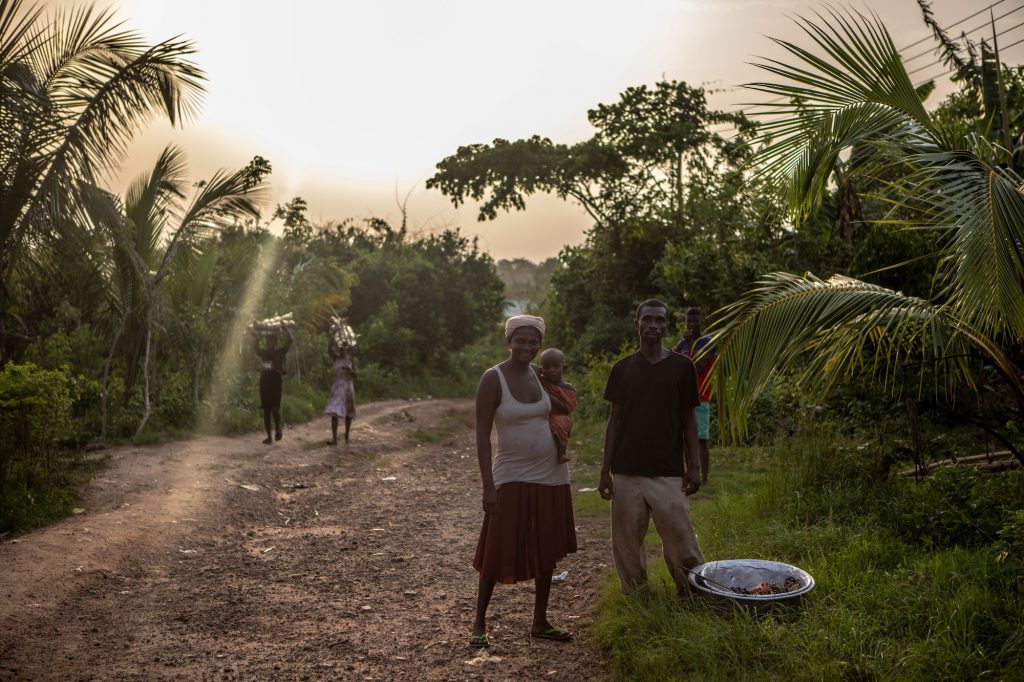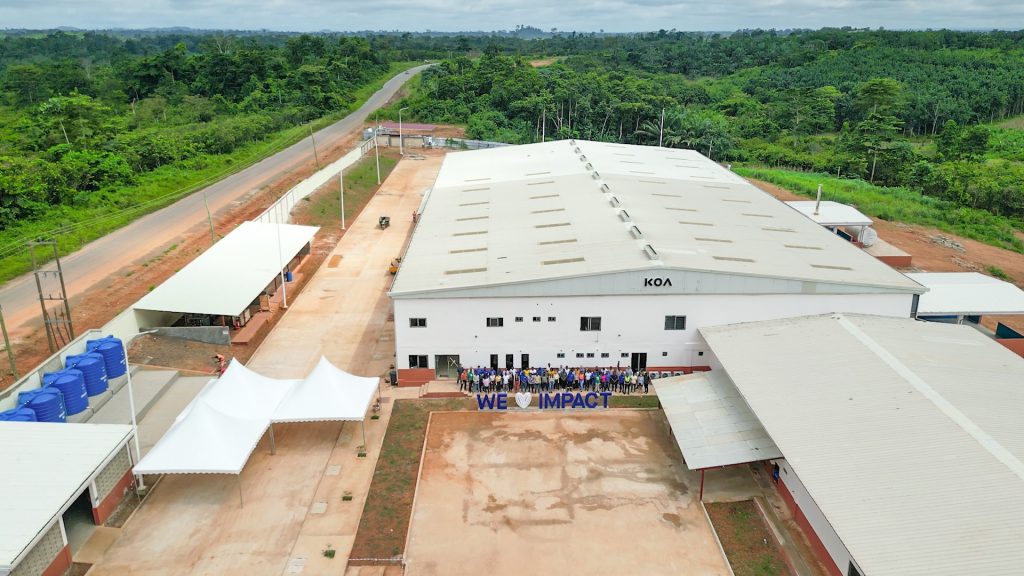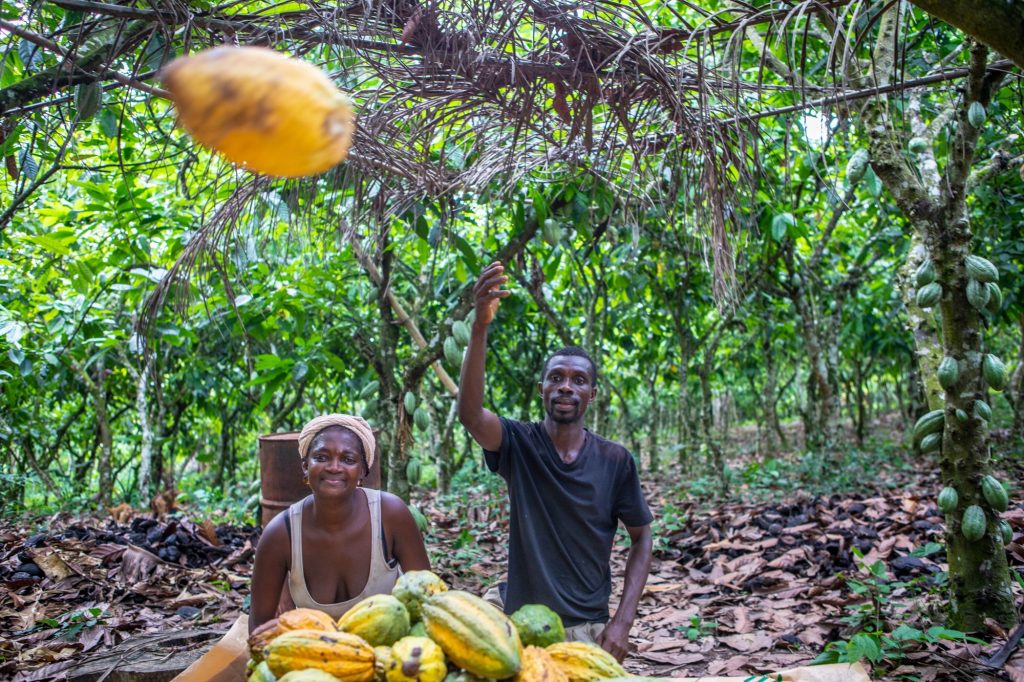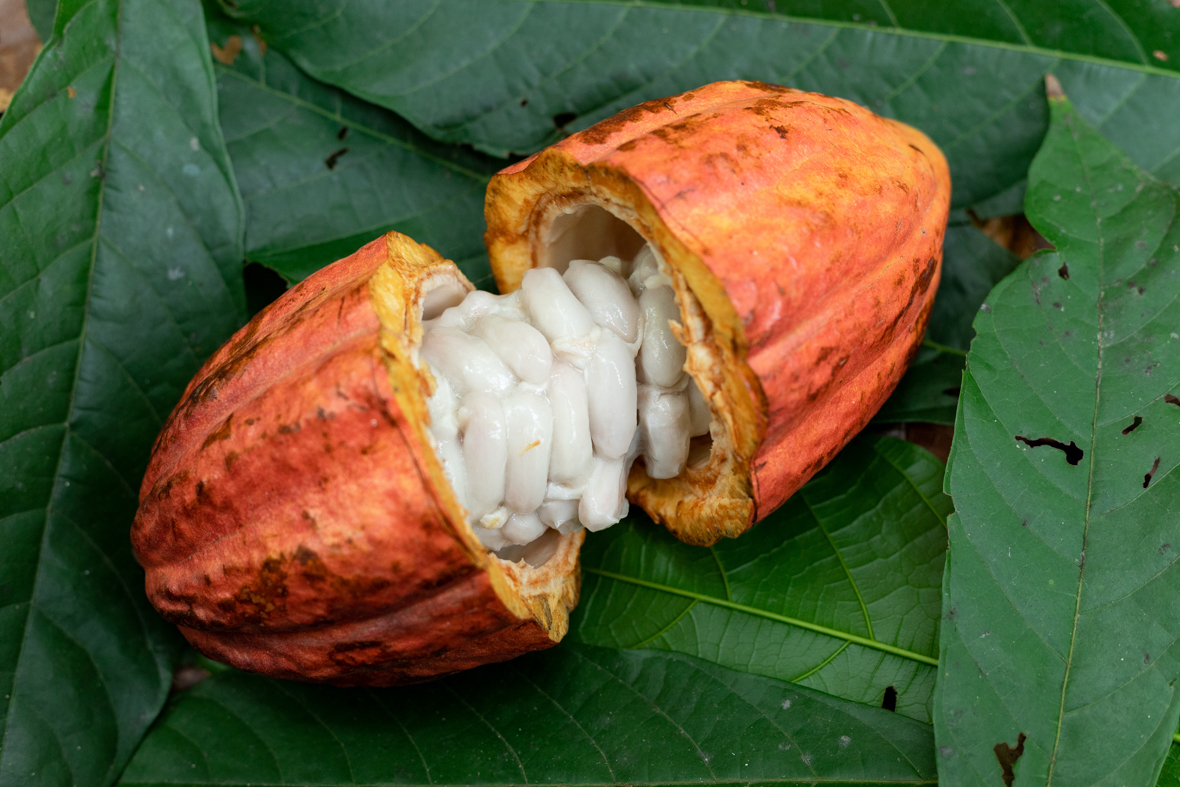Since 2022, the Landscape Resilience Fund has been working with Koa, a Swiss-Ghanaian cocoa fruit innovator, in a joint effort to improve climate resilience within the region. At the core of Koa’s mission is an unwavering commitment to impact – a guiding principle that not only defines Koa’s values but fuels their ambition to transform the cocoa fruit value chain.
Impact is the mission statement that defines Koa’s value
Koa’s conviction is to establish a business that creates real impact while being profitable and sustainable on the Triple Bottom Line “People, Planet and Profit”. As a young social enterprise dedicated to sustainability and the creation of shared value, Koa brings a fresh perspective to using cocoa pulp as a valuable resource, presenting significant opportunities to enhance the income and climate adaptation of smallholder cocoa farmers in Ghana.
In addition to the current reporting to LRF and Sustainable Trade Initiative’s (IDH) Farmfit Fund, to further track and measure their impact, Koa has recently finished working on a new and ambitious impact framework. The purpose of this framework is to establish a structure in which Koa can set targets, and at the same time measure and monitor their impact, and capture value for the company by establishing themselves as a credible and trustworthy pioneer in changing the cocoa sector. Additionally, Koa will be able to effectively communicate their results to customers and consumers to translate their impact into revenue.
In this new and updated impact framework, Koa centres their impact on key performance indicators that report on three areas:
- Improved livelihoods for cocoa farmers and their communities
- Responsible production with no unnecessary harm to people and the planet
- Climate-positive cocoa, including an insetting and regenerative agriculture programme
By the end of the fourth quarter of 2023, Koa has increased their reach up to 6,888 farmers that have been onboarded and trained, as well as providing 133 full-time permanent and temporary positions through their activities in Ghana. To complement its newest impact framework, Koa has conducted an annual survey in the Achiase region that provides primary data and analysis from the farmers Koa works with. The survey is the basis against which Koa will be able to measure their generated impact in the communities they work with and focuses on farmers’ income and the Living Income gap as well as the implementation of good agricultural practices (GAP) in the communities.
With this survey, Koa reports that 3,150 ha of land are under improved land management practices. This means that farmers are switching to organic fertilisers, returning composted residues to the field (compost, mulching, biochar) and introducing trees in their farms.

Koa’s goals, which include enhancing the incomes of smallholder farmers, promoting resource efficiency, and fostering gender-equal employment opportunities in rural communities, were well-aligned with the impact-driven investment objectives pursued by the LRF and the IDH Farmfit Fund.
The Gold Standard Impact Fund Certification attests to the intentional design of LRF to support impactful businesses such as Koa. As the second-ever fund to receive certification under Gold Standard Portfolio Requirements, LRF ensures that its processes, policies, and criteria align with fostering positive change.
“By achieving Gold Standard’s pilot design certification the Landscape Resilience Fund has not only underscored the value of best practice Measurement, Reporting, and Verification (MRV) at the company level, as demonstrated by Koa’s outstanding efforts, but also set the stage for a deep understanding of impact across the portfolio. By applying the Gold Standard screening criteria from the outset, the Landscape Resilience Fund is laying the groundwork for tangible, positive impacts.
This approach exemplifies how intentional criteria and innovative business models like Koa’s can drive sustainable development and support resilient communities.”
Margaret Kim, CEO, Gold Standard
SMEs as catalysts of change
Small and medium-sized enterprises (SMEs) play a crucial role in sustainable development, particularly in the agricultural sector, due to their ability to drive local economies, foster innovation, and promote inclusive growth. SMEs often serve as vital links between smallholder farmers and larger markets — offering them access to resources, technology, and market opportunities that may otherwise be out of reach.
“Koa exemplifies this role by installing clean, off-grid solar energy and diversifying the cocoa value chain around previously unused cocoa pulp in Ghana. This additional value created from the cocoa fruit directly benefits cocoa farmers and their families.”
Urs Dieterich, Managing Director, Landscape Resilience Fund

In 2022, the LRF and the IDH Farmfit Fund co-invested in Koa to set up a new processing facility in Ghana. The factory was inaugurated in August 2023, marking the beginning of a new era for Koa
“Koa will be working with about 10,000 farmers at its peak and the factory will employ about 250 workers in and around Achiase. I foresee cocoa farmers adopting good agronomic practices to ensure they have healthy cocoa plants. Since the more pulp you supply to Koa, the higher your returns, these farmers will attend to their farms to increase cocoa productivity.”
Daniel Otu, Production and Operations Director and Factory Project Lead, Koa
Additional finance mobilised to scale up cocoa upcycling
Despite the tremendous challenges that the cocoa industry is facing, exacerbated by dismal yields in 2023, Koa has recently received tailwinds through its successful CHF 13.5M Series B round, of which CHF 8M by the Land Degradation Neutrality (LDN) Fund, which brings the total finance mobilised by the LRF to above CHF 20M. Koa is planning to take its impact to the next level. New business expansions allow the company to extend the cocoa fruit upcycling and intensify regenerative agricultural practices — a necessity in light of deteriorating soil fertility and the high carbon footprint associated with traditional cocoa farming in West Africa.
“By making regenerative agriculture a cornerstone of its strategic expansion, Koa seeks to improve cocoa farm resilience and reduce the carbon footprint of cocoa. The ripple effect of providing favourable loan conditions, particularly for companies like Koa, showcases the enabling impact of initiatives like the LRF.”
Marie-Andrée Liere, Adaptation and Impact Manager, LRF

